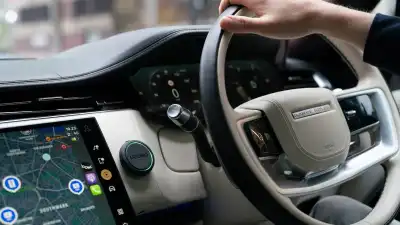
The Government might introduce ‘pay per-mile’ road tax to maintain its income as electric cars become increasingly popular in the United Kingdom, rumours suggest. In fact, Chancellor Rishi Sunak is rumoured to be ‘very interested’ in a new road tax system. But why?
As of now, the road tax rate for a new car is based on its emissions (in the first year). The higher the emissions the higher the rate. For example, an electric car can be taxed for £0 as its emissions are 0g/km. However, the rate rises in increments to £2,175 for a vehicle in the most polluting category (over 255g/km).
This emission based system works fine for now. Why? Because the overwhelming majority of cars on the road have a petrol/diesel engine that pollutes. The Government therefore raises a considerable sum from road tax. However, as zero emission electric vehicles become more popular the tax revenue will fall. The Government therefore wants a new system which maintains its income.

How pay per-mile road tax might work
Whereas this is pure conjecture, road tax might no longer incorporate any up front fee (as present). Instead, a car might be fitted with a tracking device that records its mileage. 5,000 per-annum, for example. If, therefore, the associated fee is £0.05 pence per-mile the annual cost is £250. Naturally, the tax liability rises to £500 if said car travels 10,000 miles per-annum.
Inevitably, rumour of a new road tax system has caused concern amongst interested parties who suspect the rate per-mile might be too high and force people off the road. CompareTheMarket.com commented, for starters. Head of Motor Insurance, Dan Hutson, said:
‘A per-mile road tax will be a daunting prospect for many drivers in the United Kingdom. Cars are critical for so many people who rely on them to get to work and, post lockdown, to see their family and friends. The cost of running a car is already a significant burden for some and becoming unaffordable for others’, he revealed. Mr Hutson therefore encouraged the Government to ‘think carefully’.
Further loss of tax income
In addition to less revenue from road tax, the further popularity of electric cars is likely to reduce the Government’s income in other ways. Consider fuel duty, for starters. This tax is paid at the pump at the rate of 57.95 pence per-litre on petrol, diesel, biodiesel and bioethanol. And finally, drivers pay 20% VAT on fuel.
The Government is likely keen to replace these income streams, too.



